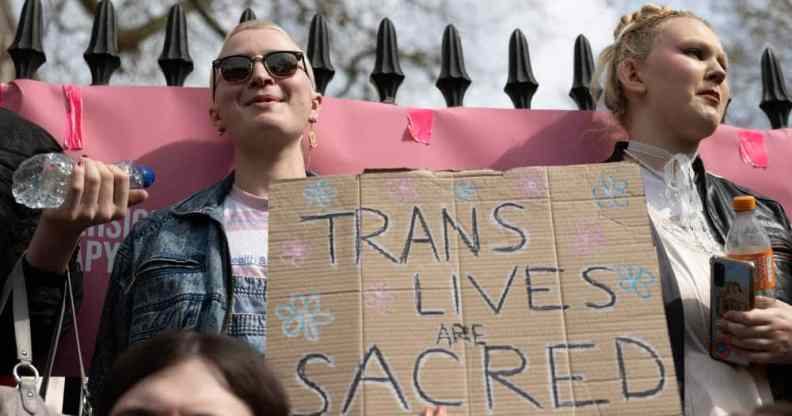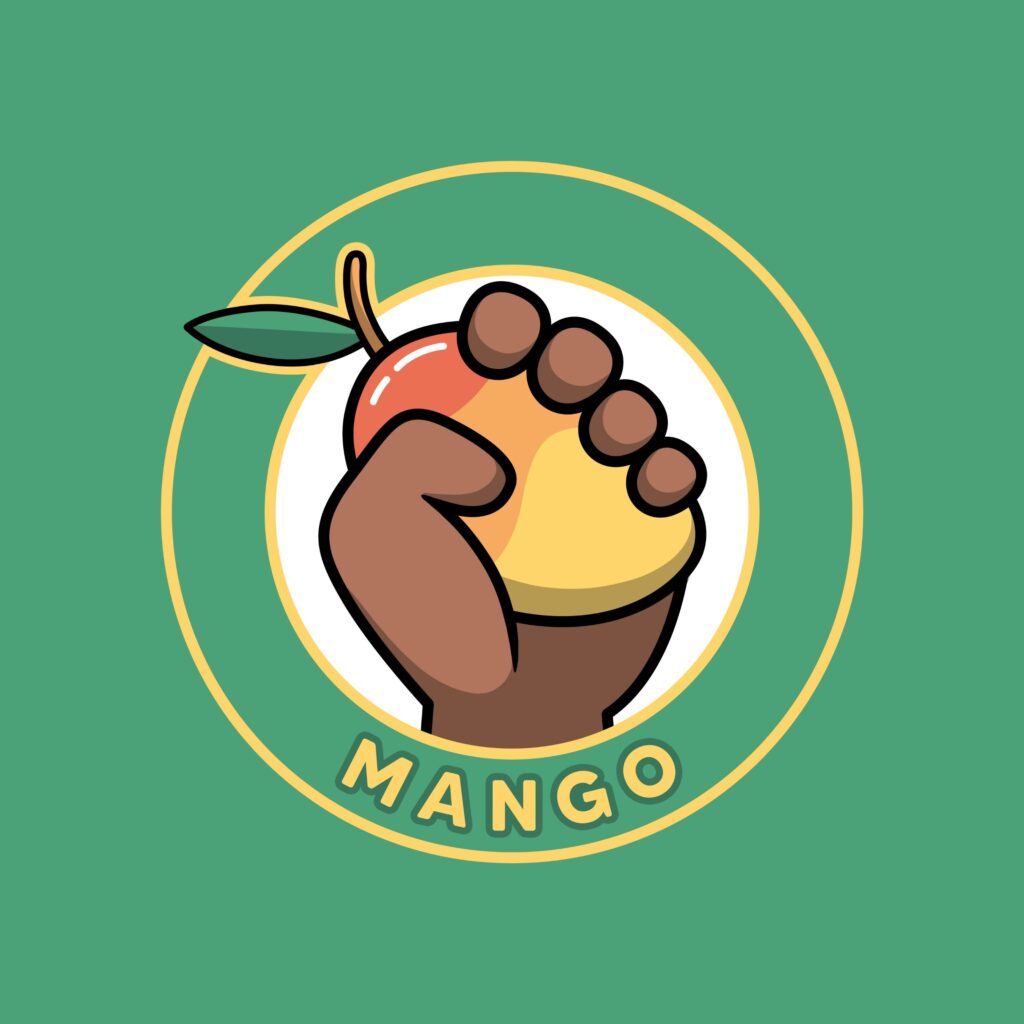Mermaids launches pioneering scheme to help make young trans and non-binary people’s voices heard

Trans charity Mermaids is piloting a new trans-led activism and advocacy online programme for gender diverse youth. (Hesther Ng/SOPA Images/LightRocket via Getty)
Young trans people are coming together to make their voices heard in a new pilot programme.
MANGO (Mermaids’ Activists Network Group Online) is a pilot trans-led programme for trans, non-binary and gender-diverse people aged between 16 and 19 that will allow them to connect, build support networks and discuss how they can make a difference.
Created by the trans youth charity Mermaids, the 12-week schene will give young people a chance to explore activism and advocacy on topics such as transphobia, racism, ableism, social media and education.
Lee Lester, Mermaids’ youth rights advocate manager and one of three core facilitators of MANGO, told PinkNews how many young people feel “powerless”, especially if they belong to more than one marginalised community.
“The majority of people in this project aren’t old enough to vote,” Lester said. “So already, they are limited in the ways they can express their satisfaction or dissatisfaction about the things that are happening.”
MANGO comes at a time when trans rights are under what feels like relentless attack in the UK.
The government recently announced it was excluding trans people from a ban on conversion therapy, with the prime minister and his cabinet increasingly spouting anti-trans talking points.

MANGO is a trans-led activism programme created by Mermaids for gender diverse young people in the UK. (Provided)
Britain’s equalities watchdog, the Equalities and Human Rights Commission (EHRC), has also become consumed by anti-trans sentiment.
It recently issued new guidance to separate and single-sex service providers, offering what LGBTQ+ groups said amounted to an “appalling and harmful” guide on how services could legally exclude trans people.
Many people contacted Mermaids after the guidance was released because “they were really frightened” and were unsure how to go forward, Lester said.
The charity already had plans to bring forward a trans youth project in response to “what we were seeing in society”.
After the EHRC row, he said, it felt like the right time to ramp up.
“It just feels like there’s a bit of a trajectory from the trans youth community like, ‘Right, we’re really angry, we’re really sad and we’re a bit scared – and this is the time to vocalise that’,” Lester said.
MANGO has been purposefully created to be “quite eclectic” so that it can meet the needs of a wide range of young trans, non-binary and gender-diverse people.
View this post on Instagram
“We wanted to let it take shape quite organically as opposed to being too prescriptive,” Lester said.
“In activist spaces and especially with the young people, there’s something really nice about having the space to be quite expansive and to have everyone involved go on a bit of journey.”
MANGO is fundamentally rooted in education, but is also a space for trans youth to get a sense of community, “more than anything”.
Many trans groups have dissipated as a result of the pandemic, Lester explained. Individuals have become “really burned out” and others are just tired of being “exposed to negative media all the time online, in their schools or communities”.
Even in trans-specific spaces, it’s easy for young people’s voices to “get a bit lost”.
There “so few safe and nurturing spaces” for them to engage with peers, “challenge each other and learn from each other” Lester added.
Lester says the trans young people in the MANGO programme have real ownership over the project because they’re the ones “deciding what we’re talking about” and what “actions they want to take”.
“Transgender and gender-diverse people need to have their voices heard, not to just be spoken to based on what people assume young people might want or what older trans people want and assume it’s the same for young people.”
MANGO will be accredited by the British Youth Council and Mermaids plans to run it throughout the year with different clusters of young people, if there is enough interest.
To find out more, visit Mermaids.

